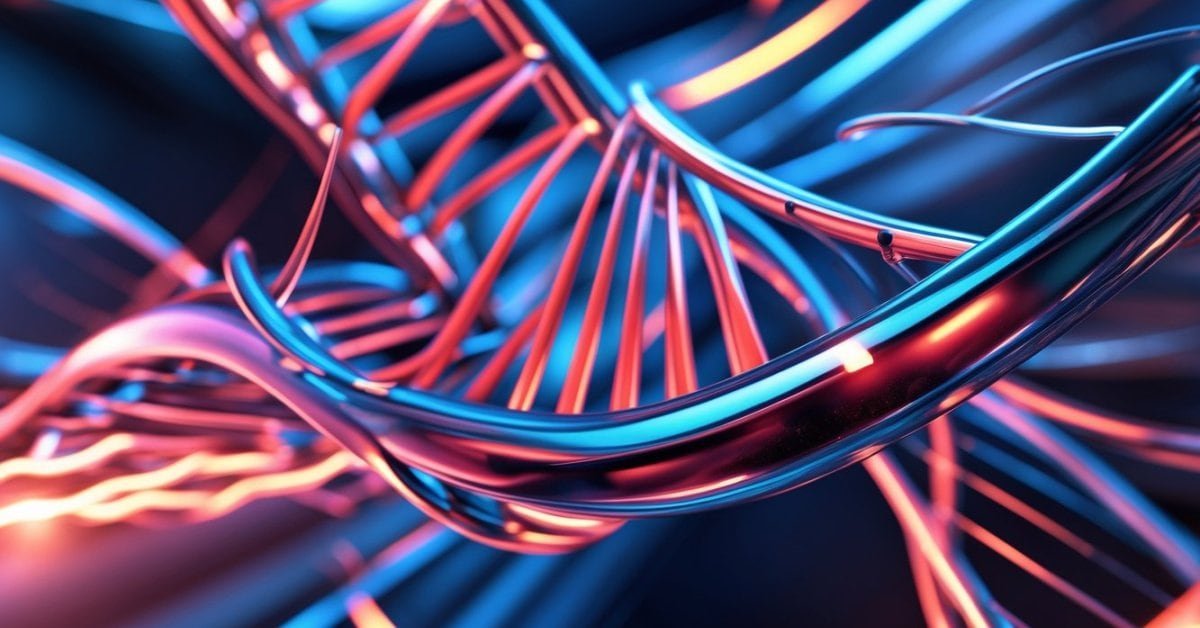Living with HLA-B27 can feel overwhelming at times especially when the physical symptoms start to affect your daily routine. You might notice that the emotional toll is just as real as the physical challenges. It’s easy to feel isolated or misunderstood when you’re managing both pain and uncertainty.
Finding the right mental health support can make a world of difference. You’re not alone in this journey and there are resources and people ready to help you navigate the ups and downs. Taking that first step toward support is often the hardest but it’s also the most important.
Understanding HLA-B27 and Its Impacts
HLA-B27 is a genetic marker found on the surface of white blood cells. You may know that it’s linked with certain autoimmune conditions, like ankylosing spondylitis, reactive arthritis, and uveitis. About 6–9% of people in the US test positive for HLA-B27, yet not all who carry it experience symptoms.
Carrying HLA-B27 often means you face unique health challenges. You might notice joint pain, stiffness, or long-term inflammation, especially in your lower back, hips, or eyes. Fatigue and bouts of gastrointestinal discomfort frequently accompany these physical symptoms, as experienced by many patients and confirmed in peer-reviewed studies (NIH, 2022).
Mental and emotional impacts often come along with physical symptoms. Living with unpredictable pain or managing a diagnosis can lead to stress, low mood, or anxiety. You may also feel misunderstood, as others sometimes struggle to see invisible symptoms.
Knowledge about HLA-B27 evolves every year. New research explores not just immune system connections, but also potential holistic approaches involving diet, movement, and stress management. As someone who’s both a patient and an integrative practitioner, I see firsthand how combining conventional rheumatology with naturopathic methods can expand your options for support and symptom management. Consistent exercise, adapted for your body, and a personalized approach to nutrition show promise in several studies.
If you ever feel overwhelmed, remember knowledge and a tailored support network can improve your daily experience.
The Link Between HLA-B27 and Mental Health
Living with HLA-B27 impacts more than your joints and immune system. Changes in your health can shape your emotional well-being, especially when facing daily uncertainty.
Common Emotional Challenges
Emotional impacts from HLA-B27 often include feelings of frustration, anxiety, and isolation. Each of these emotional states can appear when flare-ups disrupt plans or when others don’t understand the unpredictable nature of the condition. Studies like Zhao et al. (2022) connect chronic autoimmune inflammation with higher rates of depression. Many HLA-B27-positive people, for example, describe feeling “different” from others or misunderstood by family, friends, or healthcare teams. Experience as both a clinician and an HLA-B27-positive individual shows that emotional strain increases during long diagnostic periods or when symptoms feel invisible to outsiders.
Stress Related to Chronic Illness
Chronic illness-related stress emerges from pain management, uncertain prognosis, and balancing life activities. Research from the National Institutes of Health notes that those with ongoing inflammatory arthritis report higher stress levels and lower quality of life than the general population. You might notice more stress when symptoms interrupt your ability to work, exercise, or enjoy social activities—areas where I’ve personally seen change. Stress often amplifies fatigue, affects sleep, and sometimes makes pain feel more intense, especially during major life changes or new symptom onset. Recognizing these stressors early enables you to explore holistic strategies, like mind-body practices and structured exercise, which can lessen the load and support both your mental and physical health.
Recognizing the Need for Mental Health Support
Living with HLA-B27 affects more than your joints and energy. Understanding when mental health support becomes important helps you stay ahead of challenges and maintain your overall well-being.
Signs You Might Need Help
Persistent mood changes often indicate hidden distress. If you notice ongoing sadness, anxiety, or irritability that lasts several days, these may signal a need for extra support. Changes in sleep or eating habits sometimes appear first, and they’re key clues to how HLA-B27 symptoms are impacting your daily life.
Difficulty managing daily tasks, like work or taking part in sports, can also point to emotional strain. You might avoid friends or family during flare-ups or when fatigue increases—this withdrawal limits essential support networks.
Frequent worries about your health or uncertainty about your future are common when living with HLA-B27. Lingering feelings of isolation or frustration, even when trying new therapies or lifestyle adjustments, show that you might benefit from professional support or community connection.
Notice if pain or fatigue make it hard to concentrate or enjoy hobbies. Losing interest in physical activity or your favorite routines often signals that the emotional burden of HLA-B27 is growing. As both a rheumatologist and someone who lives with HLA-B27, I’ve seen—even experienced—how these signs can sneak up before you realize you need help. Recognizing them early can open doors to new, tailored solutions and a strong support network.
Finding the Right Mental Health Resources
Finding the right mental health resources connects you with support that understands both your HLA-B27 experiences and your emotional needs. Each option below offers different types of help that address specific challenges linked to living with HLA-B27.
Professional Counseling and Therapy
Working with a licensed counselor or therapist gives you a place to explore challenges like flare-up anxiety, isolation, and daily stress. Therapists who focus on chronic illness, pain management, or autoimmune conditions (such as ankylosing spondylitis or reactive arthritis) tailor sessions to your needs. Cognitive-behavioral therapy (CBT) addresses negative thought cycles around your health. Mindfulness-based therapies support you in managing uncertainty and reducing distress, which research from the National Institutes of Health (NIH) links to improved outcomes for people with autoimmune disorders. Many therapists now offer virtual appointments, making regular sessions accessible if mobility or fatigue limits your travel.
Support Groups and Community Resources
Participating in support groups connects you with others who understand HLA-B27 struggles firsthand. Groups such as the Spondylitis Association of America, Arthritis Foundation, or online communities for chronic illness provide spaces to share tips, vent frustrations, and hear new coping strategies. Community-based workshops sometimes offer mind-body classes (yoga, tai chi) or educational seminars that highlight integrative approaches, from nutrition modifications to exercise routines. Peer-to-peer groups facilitate ongoing encouragement and accountability, helping you follow through on self-care and maintain hope even during setbacks. If you prefer private digital spaces, forums and specialized social media groups for HLA-B27 create 24/7 access to advice and understanding.
Tips for Managing Mental Well-being with HLA-B27
Explore mind-body techniques daily to help calm your nervous system and support emotional health. Practices like mindfulness meditation, breathwork, or gentle yoga offer reliable ways to manage stress and reframe anxious thoughts when uncertainty or pain flares up.
Maintain an active lifestyle, choosing physical activities that support joint health and mood. Walking, swimming, and low-impact sports can boost your energy, reduce inflammation, and improve your mental outlook. If you notice irritation or fatigue, adjust the intensity or duration to match your body’s needs.
Partner with healthcare professionals who respect both conventional and holistic approaches. Collaborative care, including input from rheumatologists, mental health counselors, and nutritionists, provides comprehensive support. If your care team uses individualized treatment plans, you’ll get strategies tailored to your symptoms and lifestyle.
Stay engaged with your support network by connecting with friends, family, or HLA-B27-focused communities. Meaningful conversations about your experiences reduce isolation and allow you to share helpful coping strategies. Online peer groups and local workshops expand your connections.
Prioritize personalized nutrition by focusing on anti-inflammatory foods such as leafy greens, colorful vegetables, and omega-3-rich sources. Balanced meals stabilize energy and mood throughout the day. If you suspect specific foods worsen your symptoms, consult a registered dietitian for targeted advice.
Track your symptom patterns in a journal, recording pain levels, emotional changes, and daily routines. Regular reflection uncovers connections between physical symptoms and mood shifts, guiding adjustments to your routines or treatment approach.
Schedule regular downtime and integrate activities that bring you joy. Hobbies like listening to music, creative pursuits, or time outdoors help manage stress and create moments of relief from daily challenges. If you find it difficult to relax, try guided relaxation apps or nature walks.
Conclusion
Living with HLA-B27 can feel overwhelming at times but reaching out for mental health support is a sign of strength—not weakness. You deserve care that recognizes your unique experiences and helps you navigate both the physical and emotional sides of your journey.
Remember that support is available and you’re not expected to face these challenges alone. Take each step at your own pace and know that connecting with others who understand can make a world of difference.





